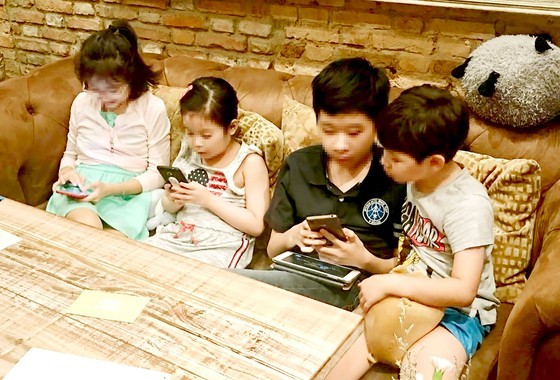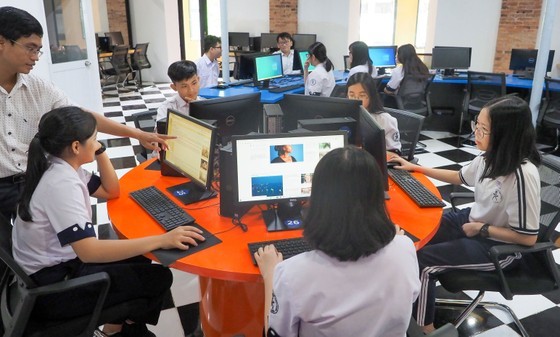 |
Cyberbullying is a form of harassment via digital means and usually happens on social networks, messages, or video games. Huynh Khanh from District 3 of HCMC recalled that after a few days posting a photo of his daughter on her birthday on his Facebook page, she came back home crying and forbidding her father from doing similar actions. She shared that some of her classmates had downloaded her picture and edited it with impolite comments. This is obviously a case of online harassment.
It is impossible to prohibit children from entering the Internet and playing video games. Therefore, cyberbullying like threating friends when they do not fulfill a game mission or spreading harmful comments, edited images of a classmate cannot be avoided either. Just like real harassment but somehow more dangerous owing to the quick speed of information distribution, these online bullying acts make victims anxious, sleepless, and even depressed.
A survey by Assoc. Prof. Dr. Thai Thanh Truc from HCMC University of Medicine and Pharmacy reveals that the proportions of students being cyberbullied, bullying others, and both are at 35.4 percent, 7.4 percent, and 6.5 percent respectively. Social networks are the most common place for online harassment (accounting for 23.3 percent). The most frequent means to cyberbully others is via chat rooms (making up 3.8 percent). The most familiar act of online bullying is to talk ill of others (giving impolite nicknames, making jokes), at 22.1 percent. The percentage of students showing signs of depression due to cyber harassment is 45.1 percent, which is nearly double the figure for those suffering from depression because of other reasons.
It is, therefore, advised that to stop cyberbullying, parents should pay more attention to their offspring, better manage the time their children go online, and notice their kids’ activities on the Internet. Schools can hold screening sessions as well as psychological counseling for their pupils, along with extra-curriculum lessons on online harassment and depression control so that students are aware of the matter and protect themselves better.
 |
The library of Tran Dai Nghia High School for the Gifted (in District 1, HCMC) with a local network that allows students to search internal information and connect to the Internet safely (Photo: SGGP) |
In Vietnam now, the digital platforms to which people under 18 have access are audios and videos (at 44.7 percent), followed by social networks and video games (accounting for 32.53 percent and 8.6 percent). YouTube has led the list of ‘Most Popular App’, at nearly 29 percent, preceding Zalo and Facebook (at nearly 16 percent and 15 percent correspondingly). Then come the two online games of ‘Lien Quan Mobile’ and ‘Free Fire MAX’ (occupying 3.69 percent and 3.44 percent).
Understanding basically the favorite choices of children on the Internet helps parents to strengthen the relationship with their offspring while specifically knowing the environment of possible cyberbullying towards these young vulnerable people.
UNICEF releases online harassment reports and advice to parents each year in order to raise their awareness of the matter and urge them to take action to protect young netizens from cyberbullying and information leaks.
The Ministry of Information and Communications informed that the domestic market for information security is valued at US$500 million. There are now 1 million enterprises, 5 million household businesses, 27 million families, 44,000 schools, and 14,000 clinics. Most small and medium enterprises, schools, and millions of families are not equipped with any measures to protect themselves when accessing the Internet.
























